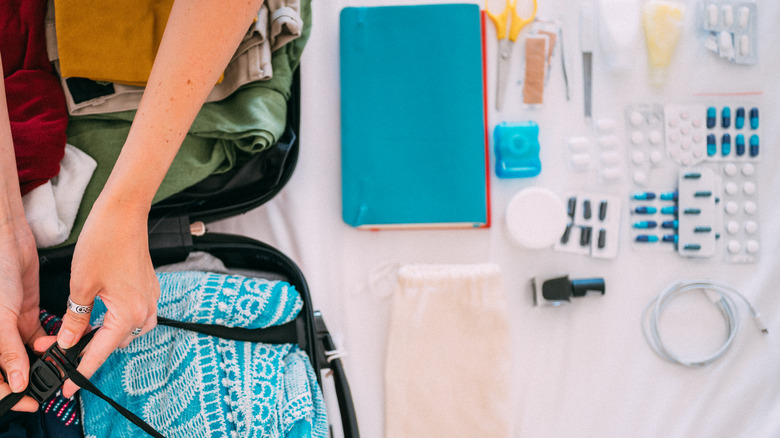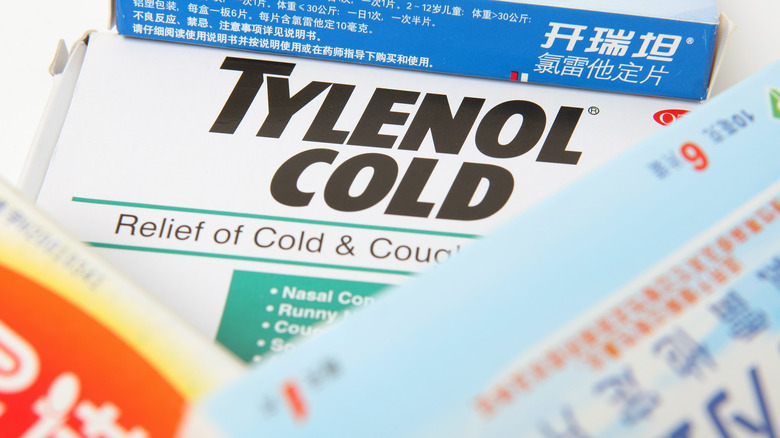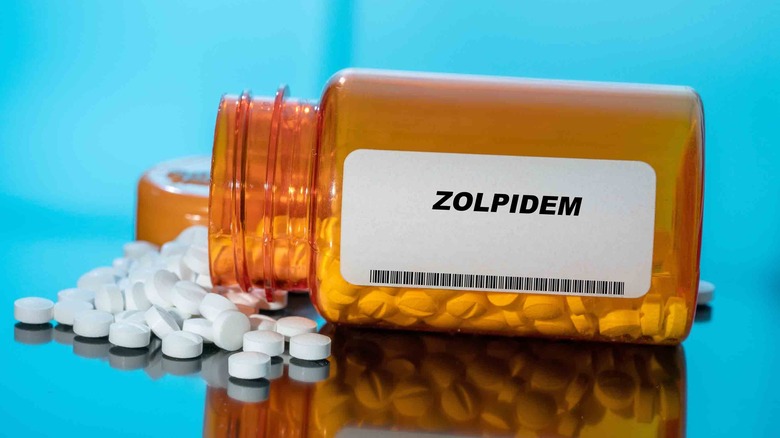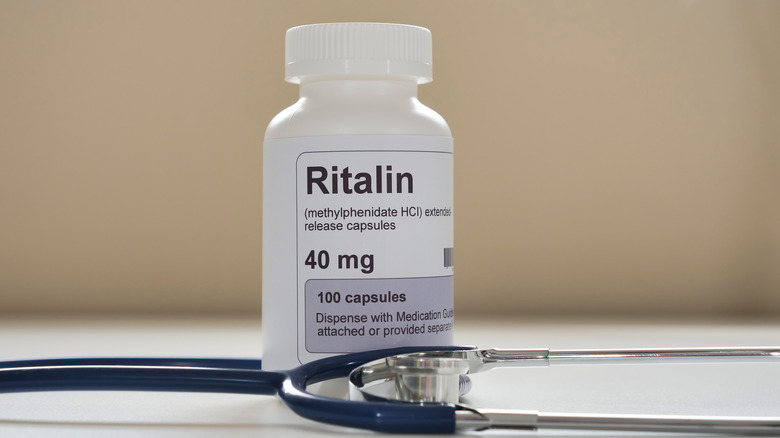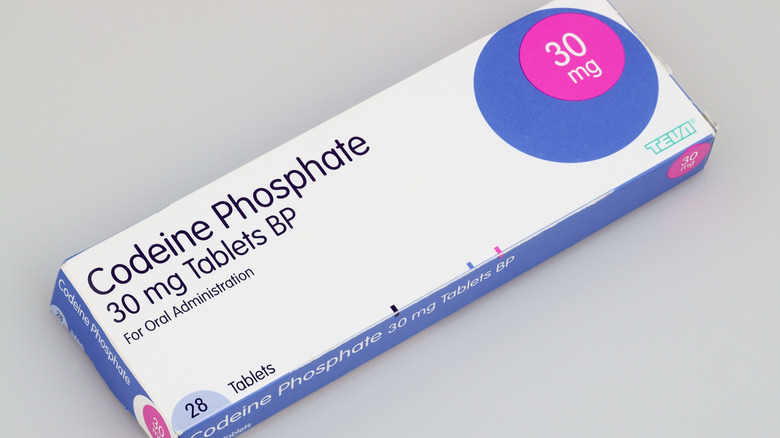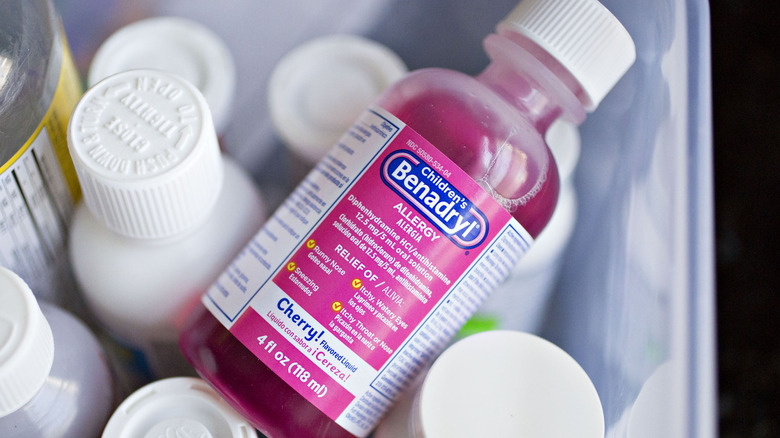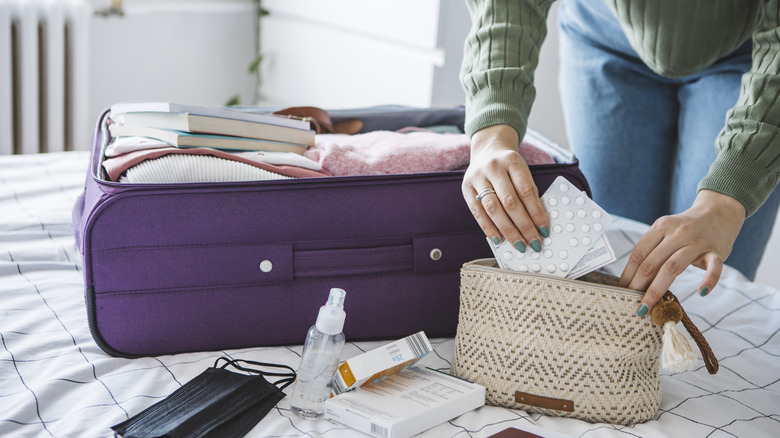Common Medications You Had No Idea Are Banned In Other Countries
The world of pharmaceuticals is a complex one. Thus, what might be a staple in your medicine cabinet could raise eyebrows or even be outright banned in another country. This happens due to variations in drug laws and regulations across borders.
According to a review published in Risk Management and Healthcare Policy, medicines are grouped into two main categories (prescription and non-prescription drugs) depending on how they work, their use, and their safety profiles. However, drugs can be re-classified based on evolving scientific research or what is learned about their safety from real-life experiences in the market, causing disparities in approval and availability. Nevertheless, one of the main reasons leading to common drugs becoming restricted is due to either the presence of a specific ingredient or the amount of the said ingredient in its preparation.
This, added to the fact that each country decides the legal status of drugs within its borders, might get you in a heap of trouble when traveling with meds, seeing that the consequences may range from losing them (which could harm your health) to fines or other more serious legal repercussions. As we look closely at this eye-opening reality, it becomes evident that certain medications frequently taken for granted can find themselves on the wrong side of the law, and getting to know the specifics beforehand might be the key to ensuring your safety while traveling. This article sheds light on the surprising bans and restrictions imposed on common drugs around the world.
Tylenol Cold, NyQuil, and other common decongestant drugs
In Singapore and Japan, common decongestant medications like Tylenol Cold, NyQuil, Sudafed, Nasofed, or Vicks inhalers are subject to bans due to their active ingredient, pseudoephedrine. As a decongestant drug, pseudoephedrine is typically used to alleviate symptoms associated with nasal congestion (a blocked nose), which easily happens when you catch a cold, the flu, a sinus infection, or during allergy season. This type of drug works by reducing blood flow toward blood vessels in the nasal passages, thereby lowering the swelling that makes breathing difficult (congestion).
However, despite decongestants being seemingly harmless, regulations in both countries can make traveling with pseudoephedrine-containing meds challenging due to concerns over potential abuse. For instance, Japan's ban stems from its history of drug abuse, which has led it to enforce rigorous laws against anti-stimulant drugs, treating the possession of decongestants as a controlled substance offense, even if you have a prescription. Thus, since the amount of pseudoephedrine in these drugs surpasses Japanese standards, you will not be allowed to enter the country with them. In contrast, while you may travel to Singapore with decongestants, the country's regulations require you to submit an application for approval two weeks prior to your trip when bringing in more than a three-month supply of any meds containing a pseudoephedrine content higher than 21.6 grams.
Sleeping medications that contain Zolpidem
Sleeping medications containing zolpidem, known by brand names like Ambien, Edluar, and Intermezzo, are prescribed for short-term use to address insomnia, a common sleep disorder in which people have trouble either falling or staying asleep. Zolpidem falls under the category of sedative-hypnotics, a class of medications that work by enhancing the activity of a chemical messenger in the brain called GABA, which induces drowsiness and makes it easier to fall asleep (via Healthline).
Despite their effectiveness, zolpidem-based drugs carry significant risks, including the possibility of experiencing drowsiness the following day, potential misuse, and a risk of dependence. Such concerns prompted regulatory bodies to impose regulations on their importation and use in certain countries, like Singapore and Indonesia. In Singapore, travelers intending to enter the country with medications containing psychotropic substances like zolpidem are required to submit an application for approval at least two weeks before their trip. Meanwhile, Indonesia maintains strict laws against drugs that may be used for purposes other than their intended medical use (illegal uses), which extends to sleep medications. As a result, you must get a legalized statement from both your physician and an authorized government agency if you want to enter the country with sleeping pills, a process that may take a couple of weeks to complete.
ADHD drugs like Adderall or Ritalin
Stimulant medications like Adderall (amphetamine) and Ritalin (methylphenidate) are commonly prescribed treatments for attention-deficit hyperactivity disorder (ADHD). These medications work by increasing the levels of the chemical messengers dopamine and norepinephrine in the brain, leading to a long-lasting stimulant effect on your central nervous system that jump-starts your body into working faster. However, due to their potential for abuse and similarity to illegal substances like cocaine and crack, they are classified as controlled substances with significant side effects, which is why they're only available with a prescription from your doctor, via the Drug Enforcement Administration (DEA).
Thus, it is no surprise that countries like Japan and Indonesia have rigorous regulations for tourists. In Japan, entering the country with amphetamines is outright prohibited. In fact, you may be prosecuted if you carry them upon arrival, even if you have a foreign prescription or customs declaration. Similarly, Indonesian laws against illegal drugs include medications that can be misused, such as Ritalin. Thus, in order to comply with Indonesia's drug regulations, the country requires you to reach out to a government agency that has to approve your doctor's statement, accounting for your need for the medicine. These measures aim to prevent the misuse and abuse of stimulant medications and uphold public health and safety.
Pain medications like Codeine or Tramadol
Pain medications such as codeine and tramadol belong to a class of drugs called opioids or narcotic analgesics and are widely prescribed to relieve acute pain (such as after a medical procedure) and chronic pain (as with cancer treatment). Per the site, this type of painkiller acts by binding to opioid receptors in the body's pain messaging system. However, those same receptors are in charge of the body's pleasure and addiction systems, which explains why these drugs have led to a significant increase in substance misuse disorders, especially in the United States. This is also why multiple countries won't allow you to take them with you while traveling.
For example, Japan requires you to obtain permission from one of its Regional Bureaus of Health and Welfare for medications containing codeine at least 14 days before your trip. At the same time, Singapore restricts the number of codeine tablets or capsules allowed per traveler and also requires approval for quantities exceeding specified limits. In contrast, Greece bans opiates altogether, including codeine, considering them controlled substances. Similarly, the United Arab Emirates (UAE) enforces severe penalties for painkillers containing codeine, including arrest and conviction. Likewise, Egypt prohibits tramadol due to its history of drug abuse, and therefore, the price of traveling with it might go from getting a substantial fine to spending time in prison.
Allergy medications like Benadryl
When you have allergies or come in contact with an allergy trigger, a chemical in your body called histamine starts an immune response that causes your allergy-related symptoms, such as hives, runny nose or congestion, itching, and sneezing. Diphenhydramine is an antihistamine, meaning that its role is to alleviate symptoms caused by high histamine levels. It is an allergy medication sold under various brand names like Allermax, Banophen, and Benadryl. Despite its widespread use and over-the-counter availability in the U.S., countries like Zambia and Japan consider it a controlled substance due to its potential for abuse.
In fact, in Zambia, Benadryl is treated similarly to hard drugs (think cocaine), and while you might be allowed to bring Benadryl with you if carrying a prescription, people have allegedly still faced legal consequences for trying to enter the country with the medication. As for Japan, regulations state that tourists can bring Benadryl with them as long as they have its corresponding prescription, although they might still be subject to random checks.
Things to do before you travel
When heading abroad, it's important to note that some meds and supplements you rely on back home might not be allowed or need special permission at your destination. Thus, it's a smart move to check ahead and see what meds are banned or restricted there, just to play it safe. You can easily do this by contacting the U.S. Embassy located at your destination, browsing the official websites of the country's health authorities, or even reaching out to your airline for info.
Keep in mind that in some places, you might need to apply for approval before bringing certain meds in, and this process usually takes about two weeks. However, given the potential consequences you might face once you land, it is best to err on the side of caution and take action a couple of months before the date of your trip. Lastly, keep in mind that countries with restrictions usually have a say in the amount of medicine you carry with you, so make sure only to pack the meds you'll actually need to avoid any hassles at customs or during your trip. Being prepared and staying informed can make all the difference when it comes to staying healthy and enjoying your trip to the fullest.
What to do when visiting a country with a medication ban
If you find out that any of your meds are on the no-go list when planning to visit a country, there are a few things you can do to handle the situation smoothly. First off, have a chat with your healthcare provider, seeing that you might require either a prescription or a statement from them to validate your need for the particular medicine as part of the permission application process. Alternatively, ask them about trying an alternative therapy that would be legal and available at your destination to spare you from any unwanted surprises upon arrival. But note that switching from one med to another can be a complex and lengthy process that should be timed appropriately to minimize potential struggles and undesirable side effects.
Moreover, while some countries may keep you from entering their borders with a banned medication, you can still get either the same drug or an alternative solution once you're there. So, it's worth looking into seeing a local healthcare provider to sort out your situation. On the flip side, if you find out that your destination country is not flexible about your medication (either through permissions or providing you with other alternatives) and you absolutely need it to stay healthy, you might want to think about making changes to your travel plans to avoid risking your health.
Things to consider when traveling with medication
Whether your meds are travel-friendly or they're under a bit of scrutiny, there are some important things to consider to ensure a smooth journey and stay out of trouble when traveling with medication. First and foremost, never try to enter a country with a banned drug, as the consequences will most likely always be negative. It's just not worth the gamble of jeopardizing your health or risking jail time when there are ways to avoid it . Also, keep in mind that you can't always count on accessing your medication in a foreign country as you would at home. Thus, it is best to plan ahead and make sure you bring enough medication to last your entire trip.
In addition, stick to carrying medication prescribed for your personal use only and keep it in its original packaging with the label intact. This helps authorities identify your meds and ensure you're not carrying anything suspicious. Lastly, never pack your meds in your checked luggage. Instead, always carry them in your carry-on luggage to avoid any potential issues if your checked bag gets lost or delayed. Following these tips will help you travel safely and avoid any medication-related mishaps along the way.

